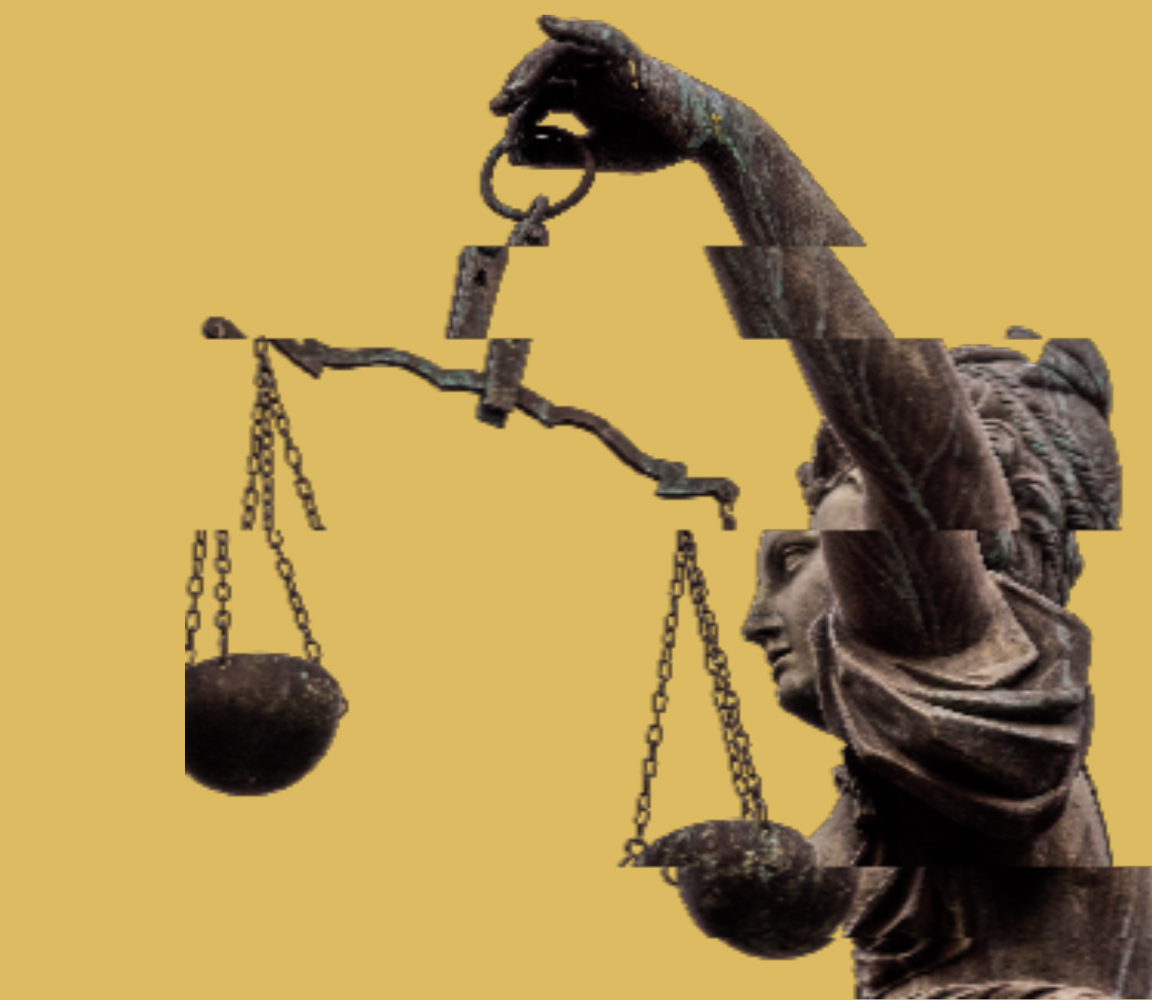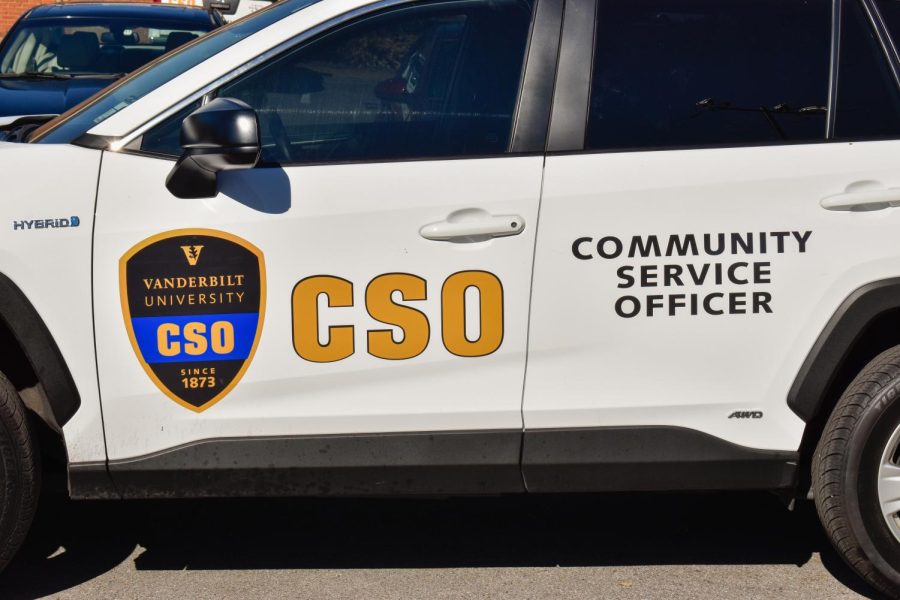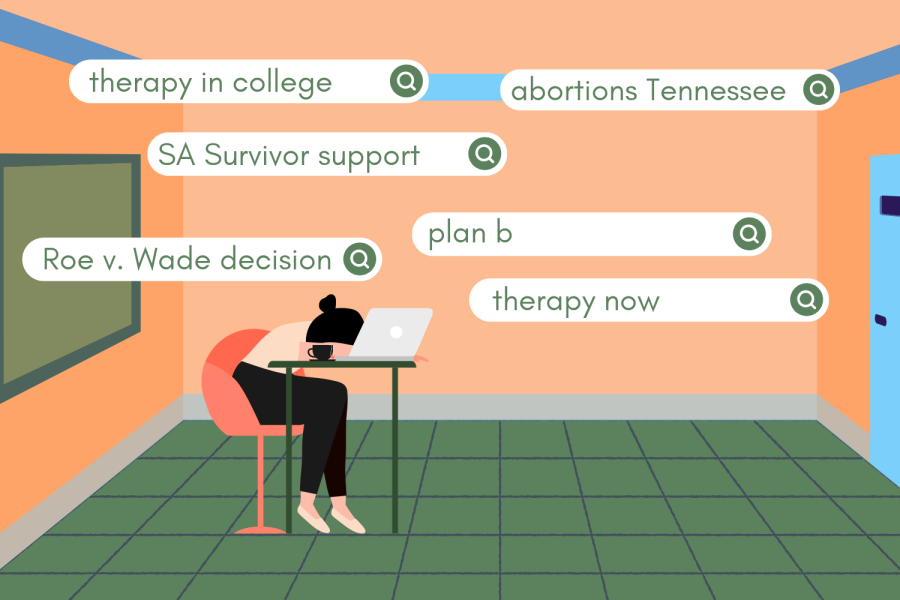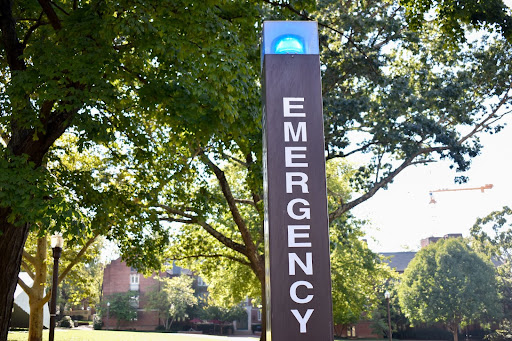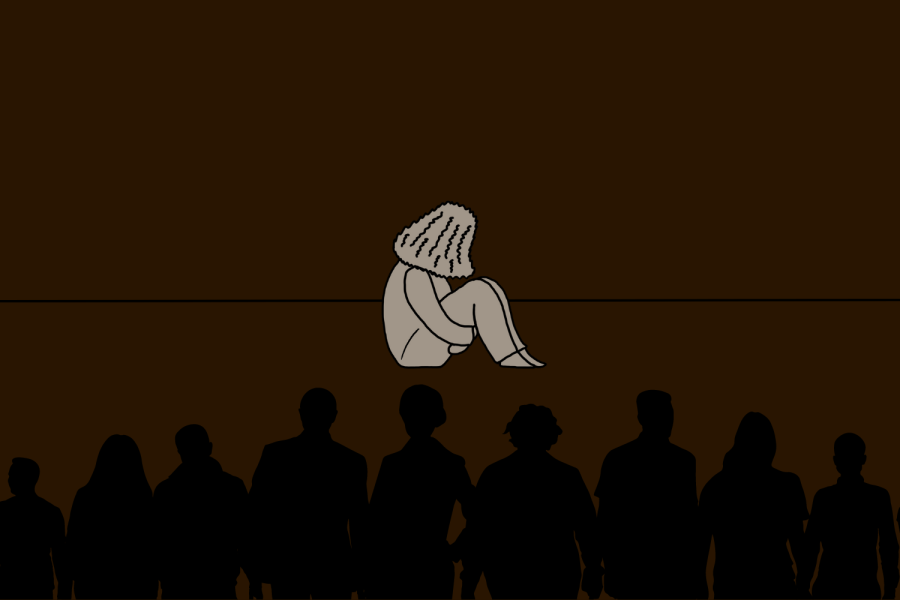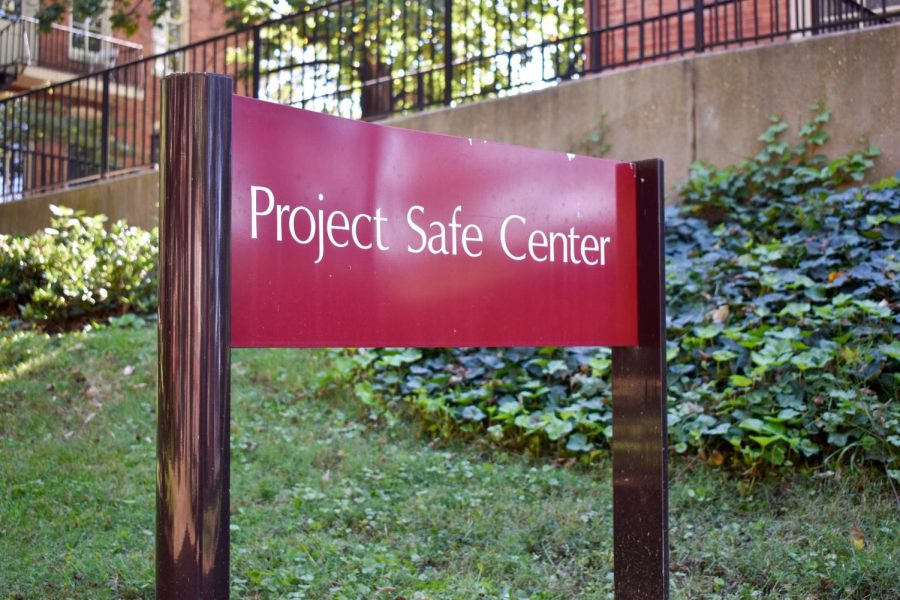Editor’s note: This piece contains graphic mention of sexual assault.
Author’s note: In this piece, I refer to my perpetrator as “R” for respondent, which is what he was referred to as throughout the Title IX investigation process.
I am sharing my story to bring attention to the widespread nature of sexual assault at Vanderbilt and to help others in similar situations feel less alone. I also want to show students and faculty who have not had to consider seeking Title IX’s assistance how flawed the Title IX system truly appears to me. While I am glad, in hindsight, that I reported the misconduct I experienced to Title IX, this article is not meant to encourage other survivors to do the same.
I was inspired to write this article after reading my dear friend’s guest editorial in The Hustler weeks before my Title IX hearing. Fran is the reason I am here today, and, for that, I am eternally grateful. In her article, Fran told her story of going through the Title IX process after being raped.
“The inherent shame around sexual assault prevents systemic problems from coming into the light and being addressed. It’s something nobody wants to talk about, which further perpetuates assaults and subsequent hesitancy to report. I hope my story can help future survivors. I love our school and want to help make it better,” Fran writes in her piece.
In honor of Fran, I am here to tell my story.
On the weekend of Sept. 11, 2021, I was raped by a student in the Class of 2025. Almost seven months later, I received the final determination of my Title IX hearing, despite the process typically taking 90 days. R was not found responsible for non-consensual sexual penetration, despite ample evidence demonstrating the opposite.
Incident
On Aug. 21, 2021, I pulled into Hank Ingram Circle as upperclassmen swarmed my car and ushered me into my dorm. In the days that followed, I was eager to meet new people, excited about my upcoming classes and couldn’t wait to explore Nashville. But just 21 days after move-in, my view of this place drastically changed.
On one of my first nights at a popular bar downtown, I was visibly intoxicated when a near-stranger approached me from behind. He then paid for two of my drinks and asked me if I wanted to go back to his dorm. I refused, but he asked me to come home with him again an hour later. Exhausted, I wanted to go back to my dorm, so I agreed to get in a car with him, which I later found out was a taxi. On the car ride back, I became severely disoriented (although I didn’t realize to what extent) and began to blackout.
We went up to his room, and the rest was a blur. My memory faded in and out as he penetrated me, and I eventually fell asleep.
I awoke a few hours later, around 4:30 a.m. CDT, to him raping me in my sleep. I was in a state of utter shock, unable to process what was happening. I faced the wall as he faced me. I opened my eyes for a second, felt him inside of me, closed my eyes and pretended to still be asleep, hoping he would realize what he was doing. I was completely frozen, unable to move. It was a feeling indescribable to anyone who has not experienced that kind of pain and fear. Silently, I began to cry and counted down to 60. One more minute. Just one more minute, and it would be over. I told myself that about 10-15 times.
After several minutes, he whispered in my ear “wait, are you asleep?” and stopped. I laid there, feeling helpless and hoping he would fall asleep so I could leave. When I finally felt safe enough to climb over him out of bed, he gave me a sweatshirt when I said I was going to the bathroom — until then, I was still naked.
Looking in the mirror of the women’s bathroom, I felt completely broken. I sat on the bathroom floor, trying to gather the strength to go back to his room to collect the bra, shirt and sneakers that I had accidentally left.
When I returned, he was still awake. Knowing that he violated me just minutes before, I didn’t know what else he was capable of. I avoided confrontation, didn’t mention the assaults and got back into his bed, this time clothed. As I laid there, I wondered what would be worse: confronting him in order to leave — which could lead to a physical altercation — or climbing back into his bed, knowing he could assault me again.
Eventually, I went to sleep. When I woke up shortly after around 7:30 a.m. CDT, I immediately left his room and returned to my own. As I walked across Commons, I knew I wanted to take action. So, once they awoke, I told about 10 of my closest friends about the second assault. I sat with them for hours, trying to piece the night’s events together. After watching videos of how drunk I was, I realized that R assaulted me not once, but twice: The first time I was unable to consent due to my level of intoxication, and the second time I was asleep.
An hour later, as I was filling out my complaint, he Snapchatted me asking if I was planning to take Plan B. After I asked, he told me that he had used a condom earlier in the night and then another “later.” Later that day, I submitted my report.
Hours later, all Vanderbilt faculty, staff and students received their first sexual assault security notice of the year.
Title IX process
I initially decided to go through the Title IX process because I wanted to hold R accountable for his actions and prevent him from harming others. I was in a state of shock, unable to process what he had done to me. I was waiting to see a consistent therapist at the University Counseling Center and turned to Title IX to start my healing journey and receive some validation. But, as the Title IX investigation picked up, I quickly realized that the investigation and hearing process actively prevented my recovery.
During September, my parents did not know about the assaults as I didn’t feel comfortable telling them. Financially, I had no other choice than to use the Title IX advisor that Vanderbilt hired on my behalf. However, my advisor did little advising. He called me in the days prior to my investigative interview, which I attended completely alone in my dorm room — it was online due to COVID-19.
I was asked to tell my story, and then every single detail of that night was nitpicked, from what I ate for dinner to the exact positioning of our bodies while he assaulted me the second time. By this point, weeks had passed since the assaults. For every question to which I didn’t know the answer, I felt immense shame, as I feared it would cost me the case and my justice. Some questions sparked memories I had previously suppressed. Whenever I looked at my desk for weeks to follow, I was reminded of the investigator’s questions and the feeling of being retraumatized with nobody to guide me and no knowledge of when the torture would end.
After R was also interviewed, I had less than two weeks to write a 10-page report giving my official statement including my story and a rebuttal to his interview. With no support from my advisor, my friends and I attempted to work through the 300 pages of interview transcripts one night in our common room. A few days before the report was due and with exams hanging over my head, I panicked, told my parents about the assaults and was fortunate enough to be able to hire a private lawyer.
After my lawyer helped me write the preliminary response, I was given another 10 days to respond to R’s written report. With my lawyer, I realized how disadvantaged I was by using the school-appointed advisor. Throughout R’s interview, his lawyer answered questions on R’s behalf, which is against Vanderbilt’s policy. My lawyer brought my attention to this detail and others that I otherwise would have overlooked, such as how my witnesses who were not contacted by the investigator could submit supplementary statements.
While dealing with this process, I walked into my first class of the spring semester of my freshman year — two weeks before the hearing — only to see R sitting in the front row. Although I tried to get into the other section, the class was full. I had already taken a lighter course load because of the time and energy I was devoting to my hearing. But I had to make a decision: drop the class and risk not receiving sophomore status if I was not taken off the waitlist or take a class where my rapist would sit just feet away. I chose the former.
Months after I began the investigation, an adjudicator was assigned to my case and the hearing date was set for Jan. 31 and Feb. 2, the latter of which is my birthday. After bringing this situation up to the adjudicator, she gave me one extra day. So, I spent my 19th birthday in a hotel room with a lawyer preparing for every question.
When the hearing finally came, I saw the end in sight. But the only thing comparable to enduring the assaults on Sept. 11 was enduring the questioning from R’s lawyer on Feb. 3 and 4 and having to hear R lie about the harm he caused.
Throughout my counseling, I learned about the neurobiology of trauma, and why survivors of sexual assault respond by freezing and appeasing, in addition to fight or flight. However, as his lawyer asked me maybe a dozen times why I didn’t scream or why I got back in bed with the man who I said had just assaulted me, I internalized the rape myths I had spent months trying to overcome and began to blame myself for not doing more to prevent R’s actions. His lawyer also asked me why I didn’t get a rape kit. At the time, I was completely disgusted with my body, constantly showering and never feeling clean. And yet, during questioning, all I wanted was to turn back time and go to the hospital. If I had, I thought, maybe I wouldn’t be subjected to this questioning and maybe the adjudicator might actually believe me. My mind blamed my September self for not acting like a “perfect victim.”
Meanwhile, R never offered an explanation as to why he asked me if I was going to take Plan B even though he claimed he never penetrated me that night. And, when his friend was questioned, she also confirmed that R had told her that he had penetrated me, which was why he feared impregnating me.
After answering two days’ worth of questions, the hearing ended, and I waited a month for the determination.
Hearing determination
On Feb. 28, I received my Title IX determination. R was not found responsible because the evidence was not strong enough due to inconsistencies in both of our stories.
The inconsistencies to which the adjudicator was referring were treated as morally equivalent. R lied by saying he didn’t penetrate me, but his texts and his own friends’ testimony demonstrated the opposite. I, on the other hand, took three hours too long to realize that I had been assaulted not once, but twice — I didn’t realize that my intoxication level was too high to have been able to give consent the first time I was assaulted until a few hours after the second assault when gathering the evidence to send to Title IX. So, the adjudicator decided that my story was just as inconsistent as R’s.
Many people take days, weeks, months or years to realize they had been sexually assaulted; I took 3 hours, but it was 3 hours too many. He lied about the most basic fact of a rape case, while I acted like many trauma survivors. Yet, I was the one who didn’t get justice.
After the determination was released, R posted a screen that read “freedom” on his public Snapchat story. I appealed the decision, and the appellate decision came back on April 6, seven months after the assaults. The decision was affirmed.
Mental health impact
In the aftermath of the assaults, I woke up every morning for about three weeks at around 4:30 a.m. CDT completely disoriented, terrified that he was in my bed about to assault me again. As the weeks progressed, my nightmares evolved to be less predictable. Sometimes, I dreamed that I was standing in his room, watching him rape me in my sleep. I would wake up once or twice a night, sometimes reliving my assaults, sometimes imagining that he or someone else was doing it again. Two years later, I still experience vivid nightmares.
I was diagnosed with PTSD and started taking sleeping medications. Although I took a rather large dose, the medication was not enough to help me sleep. For months, I not only needed to take medicine but also had to stay up until 2 or 3 a.m. CT and listen to music or TV to fall asleep. Without distractions, my thoughts would wander. Few days have passed that I have not thought about what would have happened if I hadn’t frozen. If I had screamed, like R’s lawyer pried. If just one person had noticed before we left the bar.
During the day, I often dissociate. My thoughts and feelings detract from reality, and I zone out for sometimes hours at a time. Then I snap out of it, disoriented, not knowing how I got to where I was.
When I haven’t been anxious or dissociating, I have fallen into serious depressive episodes. Unable to get out of bed, shower, clean my room, or go to class, the overwhelming cloud of guilt, shame and sadness takes over my life. I cycle between being unable to take care of my basic needs, crying in my room and being isolated, to anxiously going about my day in constant fear, with little in between.
Although R faced no repercussions for his actions, I live with trauma.
Other perpetrators of harm
R was not the only person who caused harm. For example, R and I shared one mutual friend, who lived on my floor. I will refer to him as “F,” as he was R’s friend. F and I got close rather quickly, as we lived on the same floor and spent much of our free time together. After telling F about the assaults, F said, which will forever be burned into my memory, “All I know is that he was really drunk, you were really drunk and he wouldn’t have told the story in the way you just did.” It became clear that F was not as impartial as he had claimed about R and I’s incident. Instead, he repeatedly invited R and R’s roommate to my common room. F and R stripped away the comfort of my own dorm, the one place I thought I wouldn’t see R.
I went to Project Safe, seeking help. However, a no-contact directive wouldn’t prevent R from coming to my common room, and he already didn’t technically have access to my floor himself — F let him in. I turned to my RA, who confronted F; after that, R eventually spent less time in my common room. But whenever I see F around campus, I am reminded of his words and intentional actions to make me feel as uncomfortable as possible in my own dorm, after every other place on campus already felt like a constant threat.
Most people were not as outwardly rude as F after I told them about my assaults. But, many shared the sentiment that they only cared about sexual assault if their friend was victimized. One person even refused to contribute evidence to my investigation due to not knowing R and me well enough.
The opposite was also true. People I considered my close friends only believed and supported me as a survivor, not others. When another Title IX case was being rumored about on campus, my close friends defended the alleged perpetrator and preached the sentiment of “innocent until proven guilty.” But then in my case, they (at least to me), noted the shortcomings of the Title IX process and said that they would support me regardless of the Title IX outcome.
Others also shared my story without my consent. In recovery, we talk about how certain reactions to sexual assault perpetuate the abuser’s behavior. The one thing I felt like I had control over was who I told and how I told them, and some of my closest friends took that from me.
Rape culture impacted the way I interacted and continue to interact with so many others at Vanderbilt. My view of this campus and my place in it will forever be tainted by my assaults and others’ reactions to it.
Recovery
Every day, I contemplate transferring. I have had my transfer application written since the first semester of freshman year, and I have opened Common App multiple times each semester ever since. However, I know that transferring to another institution will not end the harm that R caused. The trauma will not leave, even if I do. And I have built a support system here. If it weren’t for those people, I would not be here or at Vanderbilt today.
Attending individual therapy at the UCC and visiting Project Safe and Rooted in Resilience group therapy for survivors of interpersonal violence quite literally saved me. The other survivors who attend the group inspire me every week to move forward.
To those navigating similar situations: Please do not hesitate to reach out to me or one of the services listed above. I know this situation is incredibly difficult and isolating to navigate, and I want you to know that you are never alone.
Call for action
To the Vanderbilt student body: Stop perpetuating the myth that sexual assault and sexual assailants are rare. Most importantly, support survivors, regardless of who they are or your relationship with them. According to a 2019 study, 27% of undergraduate women have experienced nonconsensual sexual contact during their time at Vanderbilt. That percentage is even higher for LGBTQ+ individuals and women of color. And yet, because sexual assault is so stigmatized and the reporting process is so retraumatizing, only about 20% of sexual assault cases are reported on college campuses.
Despite over a quarter of undergraduate women experiencing sexual assault during college, I’m proof that not all who seek justice receive it — and I’m not alone. During the Title IX process, survivors are often retraumatized as they are repeatedly asked to recall their assault(s) and questioned about every moment. Instead, the federal process should be more trauma-informed and survivor-centered by not requiring a perpetrator to be present for the survivor’s testimony and providing more training for Title IX investigators. Title IX should also take into account the private nature in which assault often occurs and more explicitly outline what is considered “enough” evidence to reach the burden of proof — a standard that I find hard to reach and that I believe affects survivors disproportionately.
To Vanderbilt’s Title IX Office: Make Title IX determinations reflect the reality of sexual assault on this campus. Until these changes are made, students will continue to be harmed.


